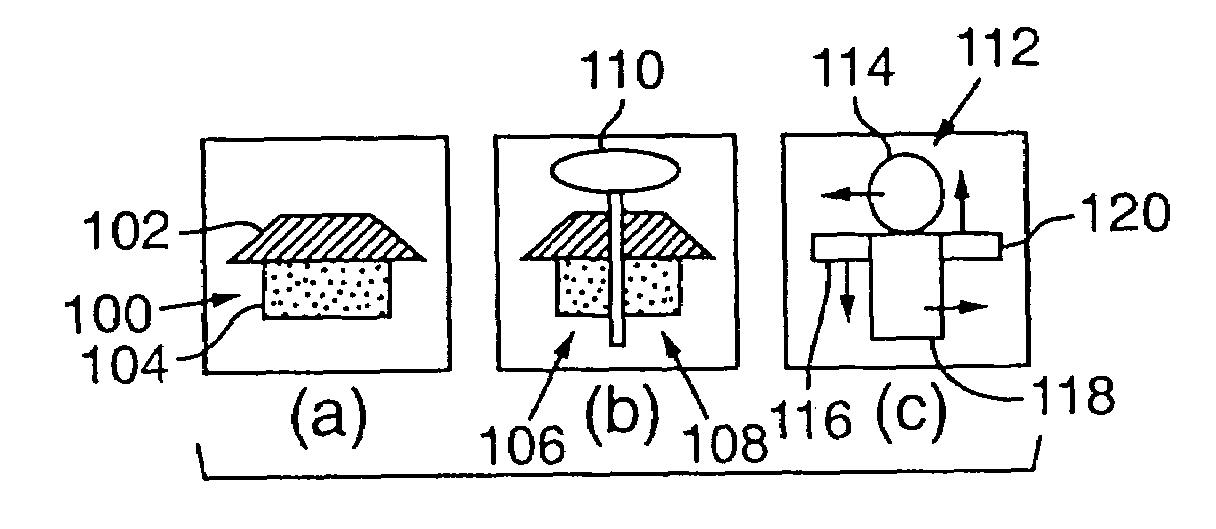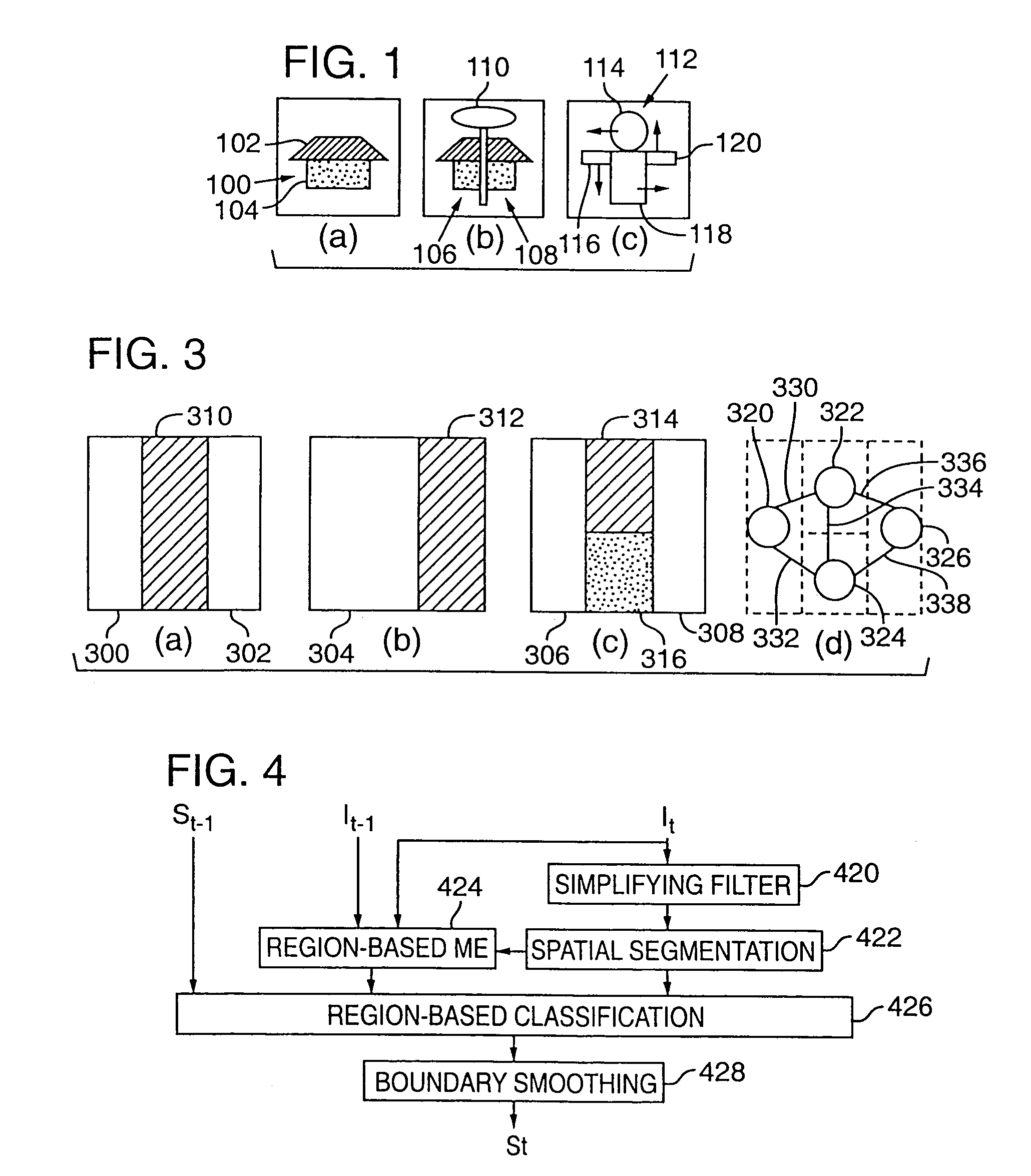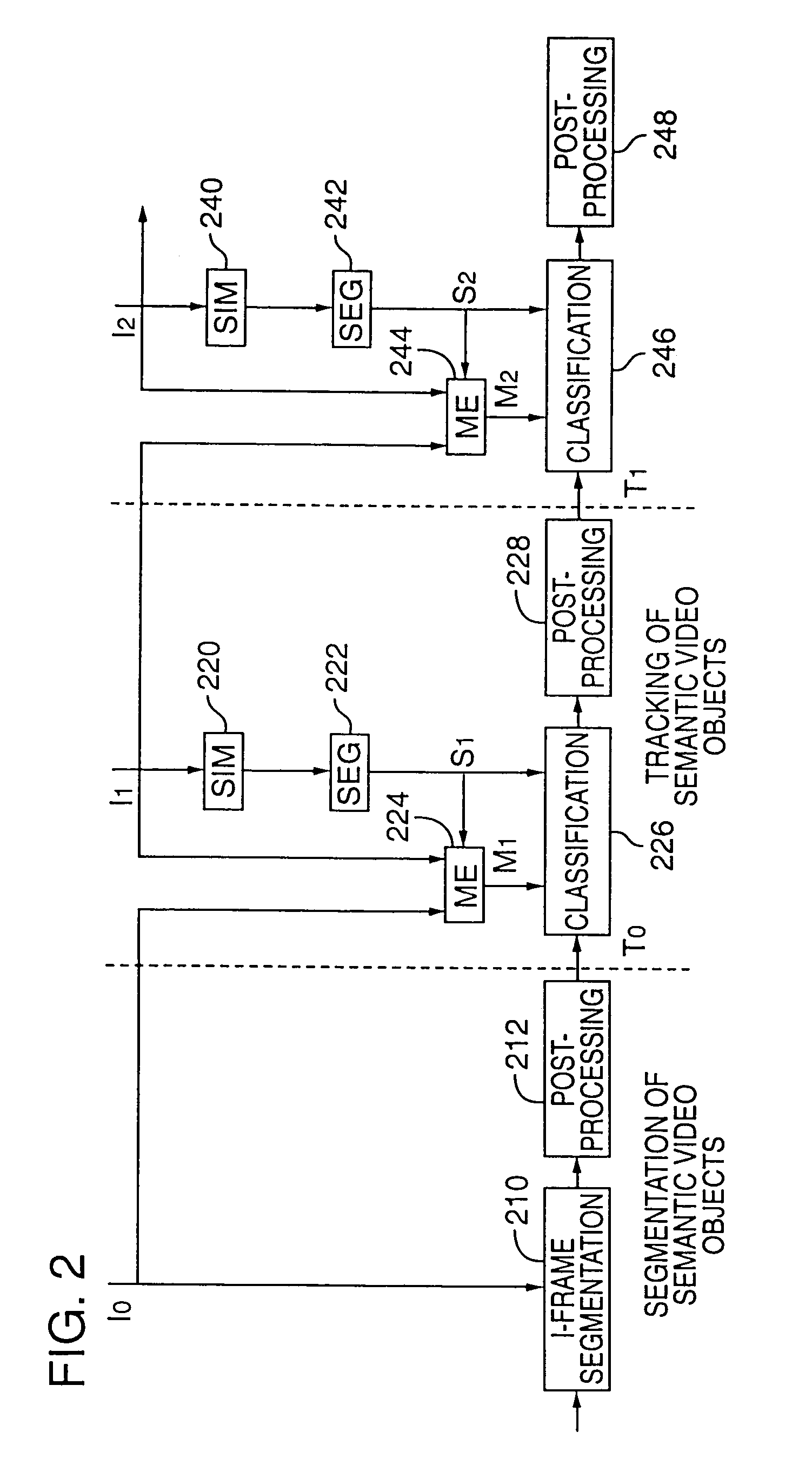Region extraction in vector images
a vector image and region extraction technology, applied in image data processing, television systems, instruments, etc., can solve the problems of difficult automation of this process on a computer, inability to accurately track objects with multiple components with non-rigid motion, and difficulty in achieving the effect of improving the accuracy of the tracking method
- Summary
- Abstract
- Description
- Claims
- Application Information
AI Technical Summary
Benefits of technology
Problems solved by technology
Method used
Image
Examples
example implementation
[0073]The following sections describe a specific implementation of a semantic video object tracking method in more detail. FIG. 4 is a block diagram illustrating the principal components in the implementation described below. Each of the blocks in FIG. 4 represent program modules that implement parts of the object tracking method outlined above. Depending on a variety of considerations, such as cost, performance and design complexity, each of these modules may be implemented in digital logic circuitry as well.
[0074]Using the notation defined above, the tracking method shown in FIG. 4 takes as input the segmentation result of a previous frame at time t−1 and the current vector image It. The current vector image is defined in m (m≧1) totally ordered complete lattices L1, . . . , Lm of product L (see Definition 11) on a n-dimensional set S: ∀p, pεS, It(p)={L1(p), L2(p), . . . , Lm(p)}.
[0075]Using this information, the tracking method computes a partition image for each frame in the seq...
PUM
 Login to View More
Login to View More Abstract
Description
Claims
Application Information
 Login to View More
Login to View More - R&D
- Intellectual Property
- Life Sciences
- Materials
- Tech Scout
- Unparalleled Data Quality
- Higher Quality Content
- 60% Fewer Hallucinations
Browse by: Latest US Patents, China's latest patents, Technical Efficacy Thesaurus, Application Domain, Technology Topic, Popular Technical Reports.
© 2025 PatSnap. All rights reserved.Legal|Privacy policy|Modern Slavery Act Transparency Statement|Sitemap|About US| Contact US: help@patsnap.com



